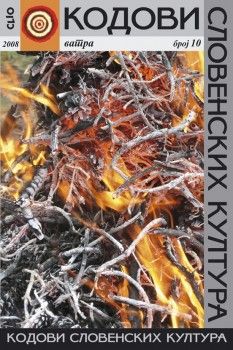
We kindly inform you that, as long as the subject affiliation of our 300.000+ articles is in progress, you might get unsufficient or no results on your third level or second level search. In this case, please broaden your search criteria.


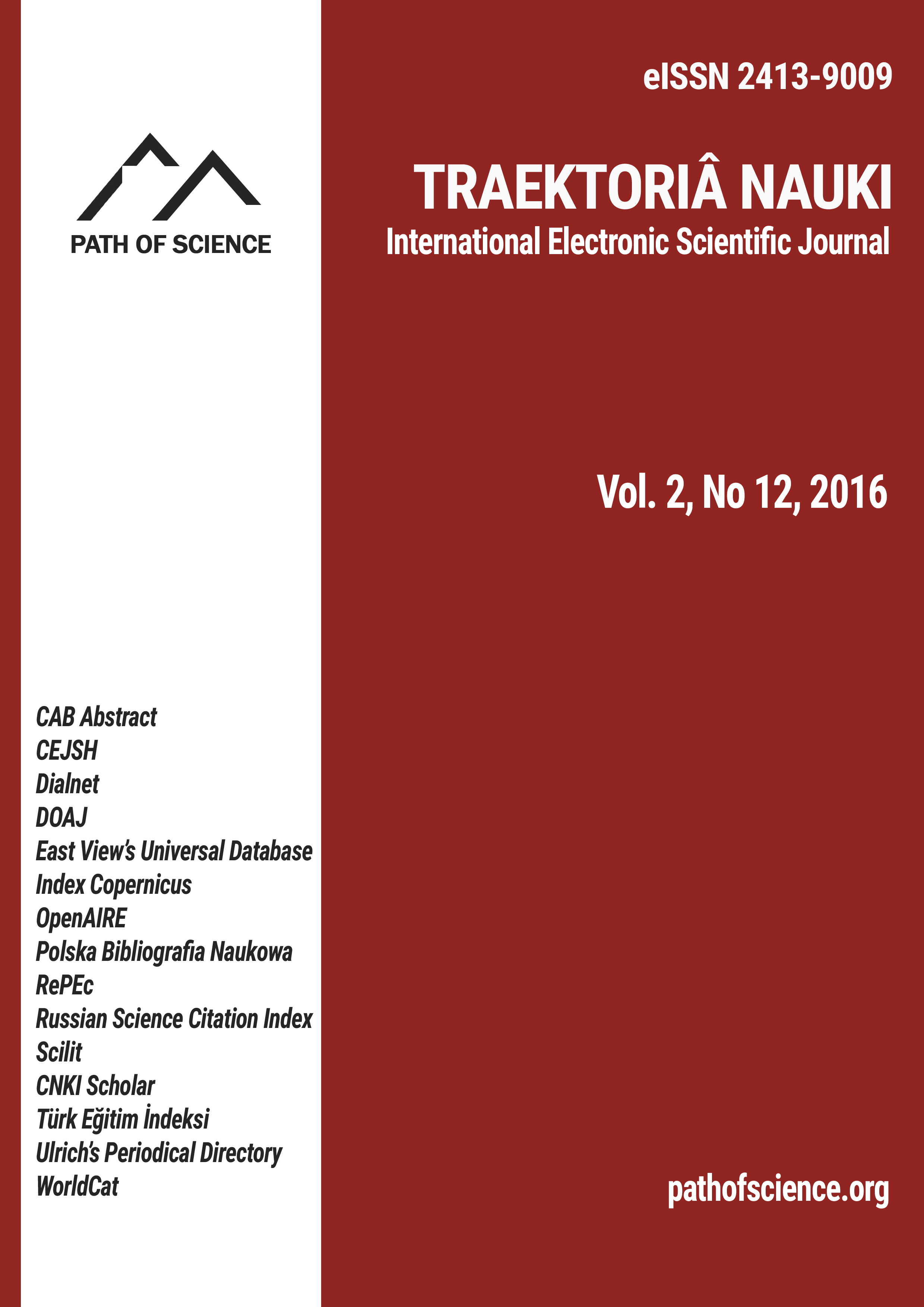
The article outlines the typical symptoms of quantitative and qualitative asymmetry of the form and content at the level of complex conjunctive structures of the modern Ukrainian language. The analyzed material proves the prevalence of formal semantic inconsistencies in the syntax of a complex conjunctive sentence and proves the need for holistic and comprehensive studies of this phenomenon on the syntactic level of the Ukrainian language system as a whole.
More...
The adverbs of the adjective origin are being analyzed in this Paper. The starting point are different theories that explain the origin of that type of adjectives. The analysis itself divides the adjectival adverbs into two groups. The first group is made up of those made through adverbialization by transition of adjectives into adverbs, i.e. by “freezing” of a certain case form of the adjective. In that process, not only a certain morphological form is being petrified, but the semantics of the words is being changed too. Such adverbialized adverbs are being divided into two parts: the ones made by a simple and complex adverbialization. The second group is made up of adverbs made morphologically i.e. most often when the adverbialized forms have already become a usual model according to which adverbs are being formed (so that the former adjectival suffix became a formation suffix), or by adding of other affixes.
More...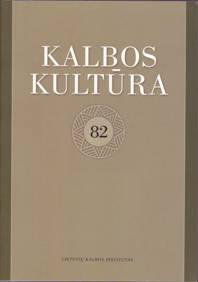
The paper discusses definitions of the concept native language and different national concepts of the notion concerned with one’s mother tongue as well as its ambiguity arising in different research areas. The paper also includes some responses and reflections on a native language provided by Russian language speakers of Lithuania; the data has been extracted from the survey recently conducted in Lithuania. These reflections could be treated as naïve definitions of the above notion. Further in the paper, the key factors determining the respondents’ definitions of the native language are given. The spreading binary character of the categoryis also taken into consideration: more frequently, alongside one native language (of an early, pre-school period of life), there emerges another language (other than the one spoken at home, language of instruction), which is closely related to human cognition. The latter language becomes an individual’s second native language. The results of the survey have shown that the opposition between ‘own’ and ‘other’ language often characteristic of a homogenous monolingual society in the understanding of Russian speakers of Lithuania is replaced by two equally important ‘own’ halves.
More...
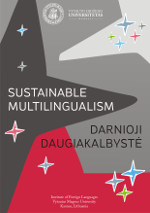
Several analyses have summarized the linguistic situation of Ukraine, highlighting various aspects of the problematic issues of Ukraine’s language policy. The fundamental problems of the linguistic situation in Ukraine are the lack of consensus regarding the issue of what role the Ukrainian language has in constructing the new post-Soviet identity and in nation building, what status the Russian language should be given in Ukraine. According to the data from the 2001 census, 80% of the adult population of Ukraine speak (at least) one other language fluently in addition to their mother tongue. In the country it is clear that the reality in most of Ukraine is of bilingualism. Almost everyone in Ukraine is bilingual; to varying degrees, a fundamental characteristic of the language situation in Ukraine is bilingualism of society. In spite of this, due to negative historical experiences, bilingualism is stigmatized in Ukraine, and that makes codification of bilingualism impossible on the state level. The paper shows the attitude of the political elite that took power after the overthrow of President Viktor Yanukovych towards the issue of bilingualism. We present how the linguists and representatives of the intellectuals comment on the bilingualism in Ukraine. The primordial, national romantic view that makes the Ukrainian language and the (free and independent) Ukrainian nation the same nowadays strongly dominates in Ukraine.
More...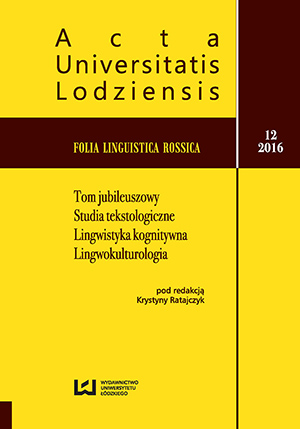
The author emphasizes the characteristic for traditional Slavic culture relations of concept “Osud” ‘fate’ with good and bad times. It is significant that many words with temporal meaning value throughout its history could have the semantics of fate in Slavonc languages. In Kundera’s novel concept “Osud” accompanied by the word skvrna ‘spot, evil’, which is associated with the concept of ritual impurity caused by food-fasting.In the Mirek’s mind, the protagonist of the first part of the novel, his life is separated from the fate. It seeks to erase from his life everything, what is unworthy of its destiny. As a result, he rewrites history, like the totalitarian regime against which he fights.
More...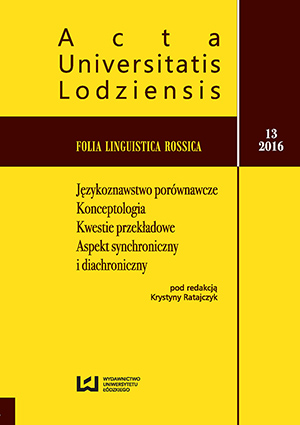
Slang is defined here as a language variety used predominantly in spoken discourse by a social group sharing interests, whose members are unified by position within society and possibly age.The paper analyses word formation rules of contemporary Russian student slang. The corpus is made up of youth slang dictionary entries, including student slang, internet fora for students as well as questionnaires sent out to students.Productive word formation rules in Russian student slang include: morphological (e.g. abbreviation root word shortening), metaphorisation and loan words; phonetic mimicry also plays a significant role. Students tend to engage in wordplay and create puns freely. Their language is witty and expressive.
More...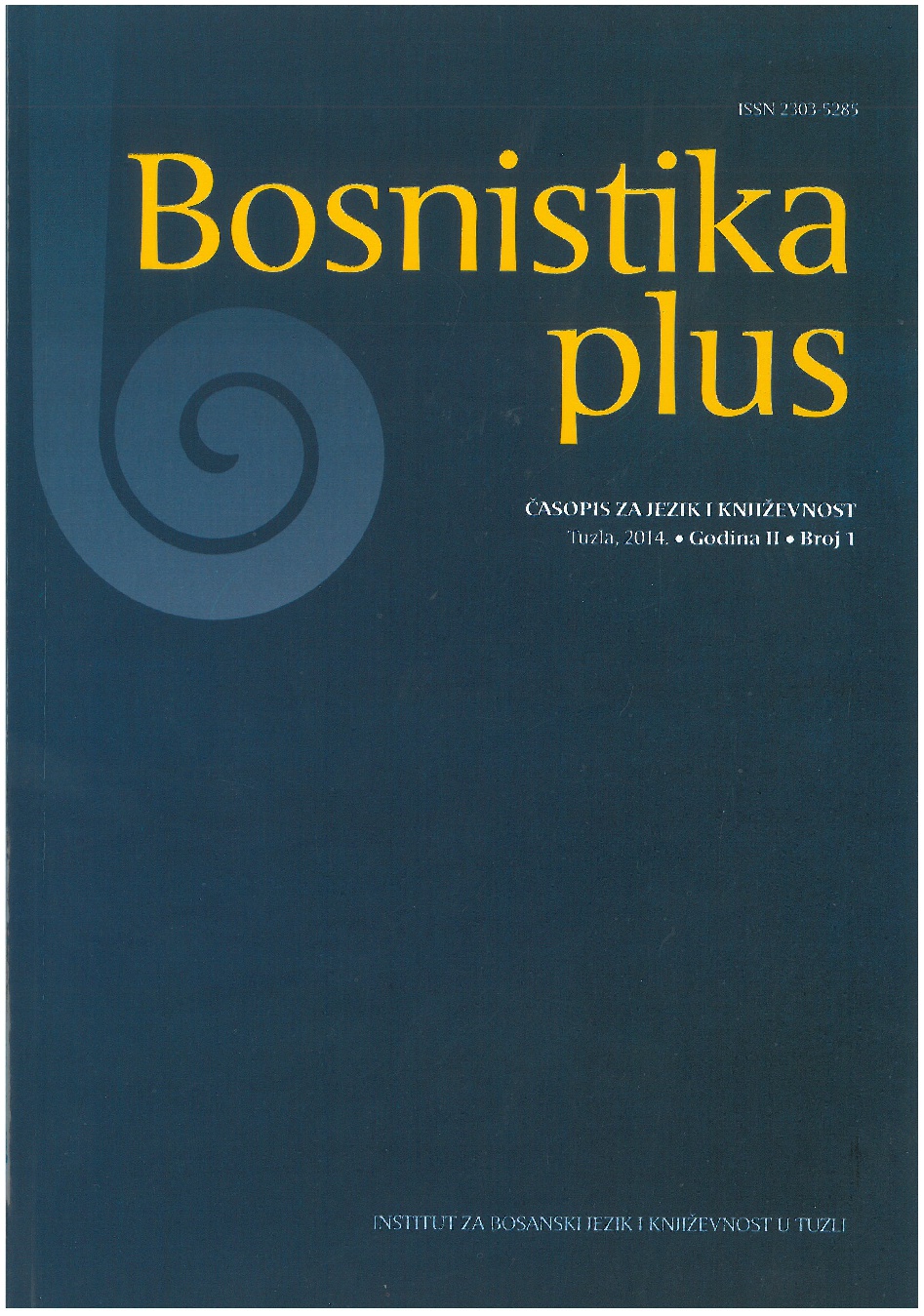
This paper provides an overview of formal and informal greetings. The research was done on the basis of corpus in the Russian Language. Greetings arc speech acts which serve to preserve the positive face of the interlocutor. Highly conventionalized, with a marked phatic function, they serve as a signal to open the conversation and as an invitation to dialogue.
More...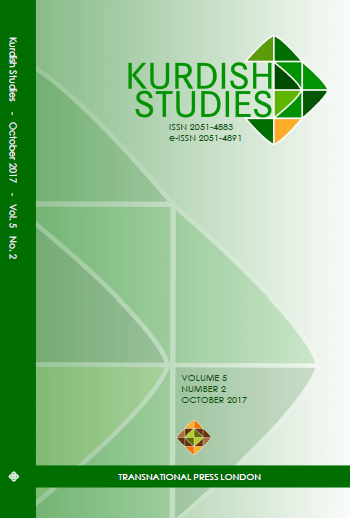
Kurdish Studies, as an academic field, seems today to be dominated by English and Turkish-language literature. Little is known about the volume of literature that has been produced (and is available) in Russian, an important world language spoken across a vast geographic space in regions not far from Kurdish lands. In this review, we have explored this published literature by using searches in Google Scholar. We present the results of this inquiry, as a simple inventory which shall serve to acknowledge and highlight the Russian-language scholarship on the Kurds, Kurdish and Kurdistan. It shows that access to this scholarship is paramount if we want to arrive at a more global understanding of the issues related to the Kurds and Kurdish studies.
More...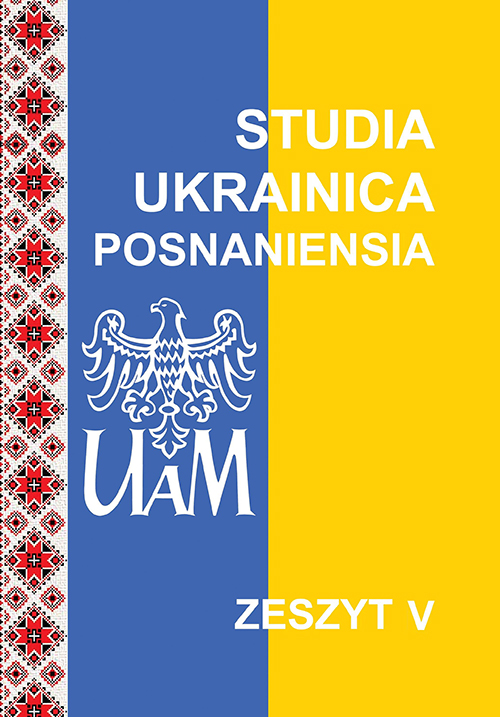
In linguistics the term “metysatsia” is suggested for the nomination of a phenomenon of “interaction of related languages”, which, however, hasn’t come into active circulation in linguistic studies, but there is need to actualize it. The process of the Russian language’s influence on the Ukrainian one has been closely explored, but the reverse process of the impact of the Russian language on the Ukrainian one hasn’t been practically studied, though even Dahl’s Dictionary, which is the most authoritative explanatory dictionary of the Russian language of the late nineteenth century contains many Ukrainianisms. There is need to explore in details the outlined process distinguishing the system of borrowings that are fixed in the Russian language and speech. The article focuses on the above-mentioned problem.
More...
The article summarizes the author’s investigation in the field of expressing the egocentric senses on the different language levels. Deictic meanings and their concrete tinges are studied on the lexical, grammar and textual levels of the Ukrainian language.
More...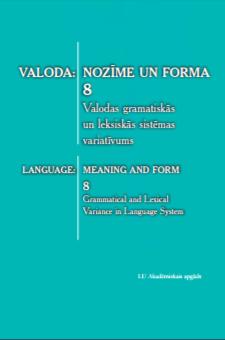
This study is trying to answer the question of how does requesting differ in Estonian, Latvian, Lithuanian, Finnish and Russian. The data is elicited by written discourse completion tasks (DCT) in which native speakers of Estonian, Finnish, Latvian, Lithuanian and Russian were asked to complete the situations described by filling in appropriate requests or questions. Head acts of the sequences have been coded for relevant grammatical categories: syntactic type of the clause, morphological form of the verb (especially considering mood and tense), negation of the main verb, modal constructions and address form. In our data, the most typical head act of request in all studied languages is an interrogative clause containing a modal verb in the conditional mood. The aim of the study is to identify the main politeness strategies which are used in the studied languages to perform a question about location or request to move somewhere. Typical questions, however, have less conditional forms. In addition, in this article we compare these languages with respect to expressing motion events.
More...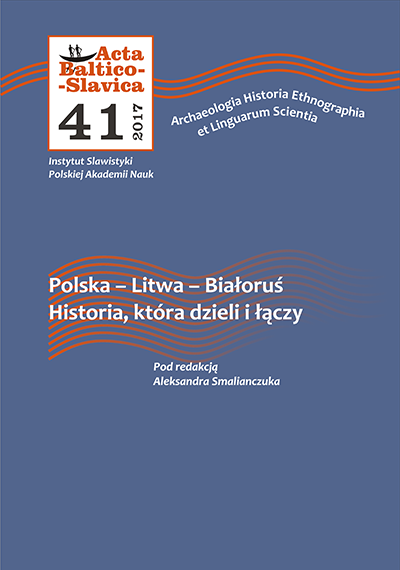
The article critically assesses the theory of communicative networks and its applicability in the study of multilingualism as found in the Grand Duchy of Lithuania (GDL). The author analyzes foundations for postulating the existence of a speech community in the GDL and adduces counterarguments against viewing this community as a linguistic alliance of the Balkan type. The article offers new sociolinguistic and areal-typological methods of the study of language contacts. The author substantiates a systematic approach toward the problem of the ethnic attribution of Ruthenian. Based on the literary, linguistic, and cultural parameters, the author offers to drop the term ‘Old (Middle) Belarusian’ or ‘Old (Middle) Ukrainian’ in reference to this language.
More...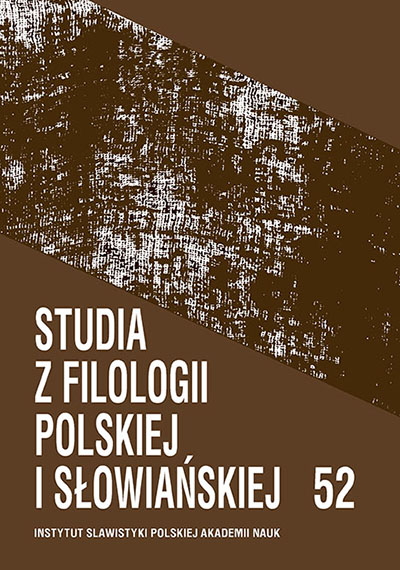
The article presents many transliteration variants of Belarusian names and surnames in Poland. It discusses the most common variants of the Belarusian alphabet transliteration, both international and Belarusian, as well as Polish transcription. The multiplicity of variants raises technical problems in the documents (passports, residence permits, acts of birth etc.). The article is a voice in the discussion on the development of a unified system of transliteration of Belarusian alphabet for the needs of the documents recognized in Poland
More...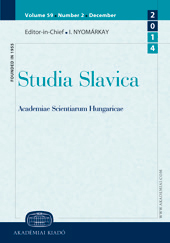
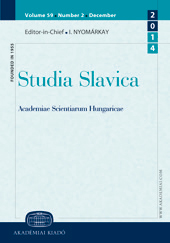
One of the topical problems of modern grammar is the qualification of double syntactic connection. Its nature conforms to none of the features of syntactic connection on the axis of closeness /openness. The problem of the particularity of this syntactic phenomenon appeared in the early twentieth century but it is still not resolved. The purpose of this paper is to clarify the conditions for the birth of the idea of double-syntactic connection and to review the evolution of this phenomenon in Ukrainian and Russian scholarly works. As the analysis demonstrates, the double-syntactic connection does not determine a single phenomenon but it includes a set of phenomena. It is a type that combines different varieties of syntactic connection according to their common features, such as three-member-construction and the complex realization of the syntactic connection. Various linguists have interpreted the patterns of the establishment of that phenomenon and the forms of its realization in different ways. The prospective of our study is to define grammatical markers of the double-syntactic connection and to describe the structure of the constructions in which it appears.
More...
The objective of this work is an attempt to show the features of personal deixis in narrative on the materials of the Macedonian and Russian folk texts. In article is considered the specifics of the means for expressing personal deixis in narrative, their similarities and differences in both languages are examined.
More...
The author of the article gives a comparative description of Russian and other Slavonic denominations of domestic animals whose names derive from that of color.
More...